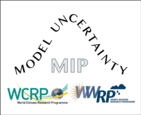Leverhulme Trust Research Project / DTC project joint meeting
Minutes
MUMIP LT/DTC meeting Wednesday 18 December 13 00 UK time
Present
Jeff Beck
Judith Berner
Hannah Christensen
Edward Groot
Hugo Lambert
Wahiba Lfarh
Kathryn Newman
Romain Roehrig
HC update
Kasturi Singh is now on maternity leave. LT project has been extended by two months. New end date 31 October 2026
HL update
UKMO data exists - many files you can reduce phone number make Mabs one initial condition only times
ACTION: RR/WL to send concatenation script to HL
EG update
First IFS data set had an error (pre-September dataset). It has now been re-run
Checking consistency of data sets – ARPEGE, ICON, IFS, GFS
Re-grid initial condition data to pressure levels
Bias in mean and standard deviationof T looks good for IFS, ARPEGE, GFS
Mean bias less than 0.1 K, Two standard deviations less than 0.1 K.
q also shows small bias
Have also checked dynamical tendencies consistent - 0.99 correlation for these three models
CAPE: initial conditions consistent for four models
See reduction in CAPE over time, IFS, RAP, GFS
Reduction and then increase in ARPEGE from one hour onwards
Consider CAPE distributions in tropics/subtropics
ARPEGE: drying of mixed layer over first hour, reduced drying from hours 2 to 6
Precipitation: IFS, GFS show spin-up behaviour, ARPEGE, RAP more linear. Precipitation rain rates reveal possible scaling issue with ARPEGE data
RR: For the CAPE computation, bear in mind that ICON is not the real world, and CAPE likely dependent on ICON parametrisations
KN update
Update to team members reported
30 day simulations using ICON reference completed for GFS and RAP, all data available (since April 2024)
UFS forced dataset in production. 3km UFS run being used as reference
10 day preliminary runs complete, 30 days underway
Likely completed by February using RRFS physics (cf RAP before) and GFS
Preliminary results shown and discussed. We talked about the characteristic shape in the physics humidity tendencies seen in other models. There was some discussion as to how to compute the dynamics tendencies, and the balance between physics and dynamics leading to a small net tendency, possible errors in estimating the dynamics
ACTION: HC to look into computing dynamics directly from CG ICON data, as sum over horizontal and vertical advected fields.
Several groups expressed interest in the new comparison to UFS data, as a test of whether a model initialised in a state more similar to its own climate would behave differently, with less spin-up.
WL update
ARPEGE data ready following MUMIP protocol.
First analysis using five days of data, comparing ICON and ARPEGE profiles at T+6hr. Biases of order 0.2K, 1 m/s wind
Dynamics tendencies similar between ARPEGE and ICON
Physics tendencies: ARPEGE shows more warming at low levels than ICON
Decomposition into tendencies from different schemes considered - BL scheme seems to be source of difference.
Precipitation used to bin data, looking at bias as a function of precipitation.
Next, continue to evaluate ARPEGE errors conditioned on different atmospheric regimes, identifying situations with strong/weak bias
First attempt to consider Q1 and Q2 using PCA, but EOFs not explaining much variance - to be continued
Future work will also consider high-resolution AROME as reference. Also interested in using surface flux forcing.
HL: suggest to do PCA on Q1 and Q2 together
Discussion
HC: talk about subsetting data to facilitate more runs
HL: simple approach is to just do first day, but many uninterestign cases
RR: MF would like to use PCA work/ regime analysis to help with the subsetting - sample from different regimes. Necessary for tuning experiments
HC can we agree on one subset for all models? E.g. do PCA on ICON inputs, or across all models?
HL: interesting to see if different models are in different regions of space
RR: MF will look at other models as well
KW: one set of columns makes sense
Agreed to aim for one set of columns, but more testing needed first
Next meeting: March, ideally after DTC UFS dataset complete



